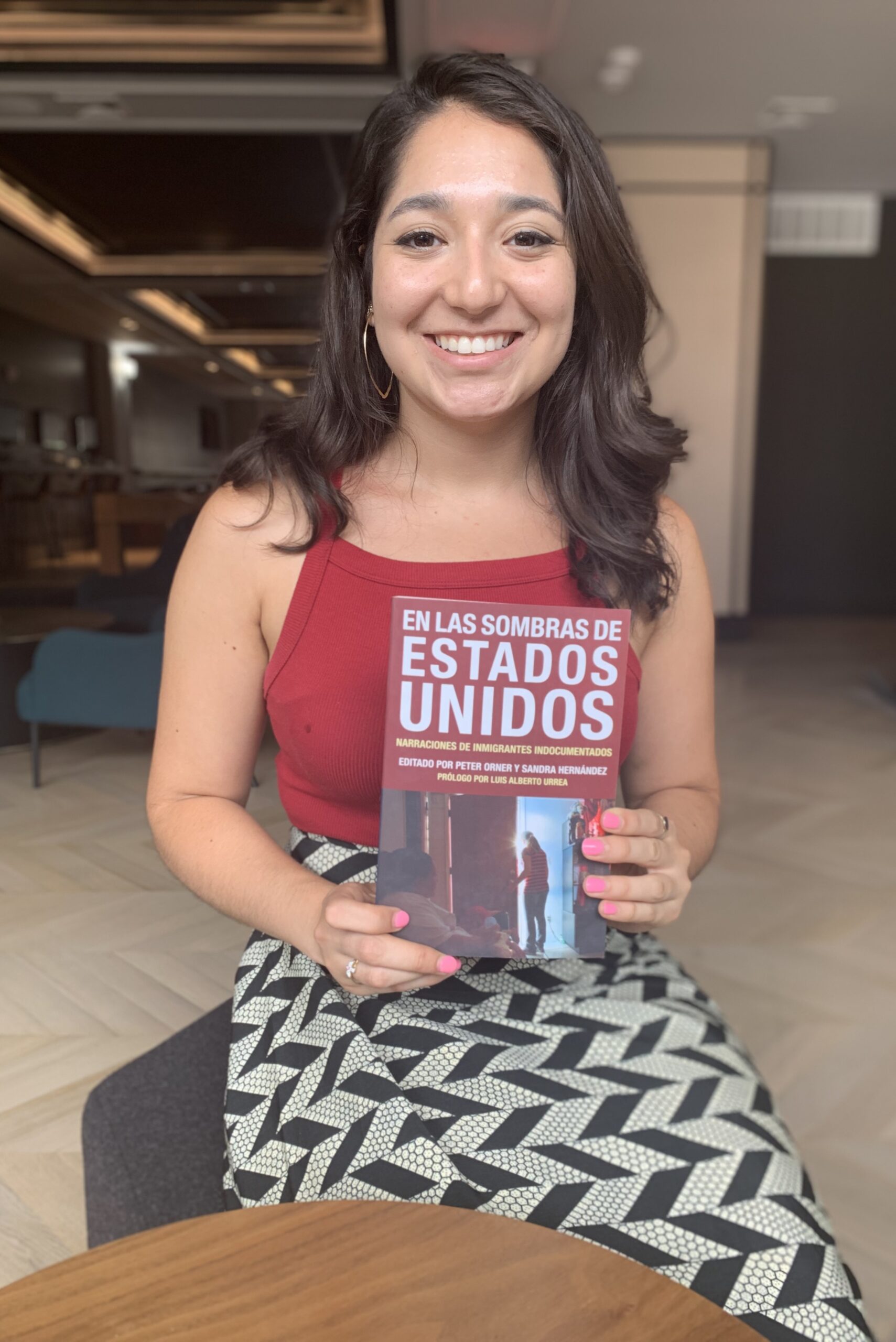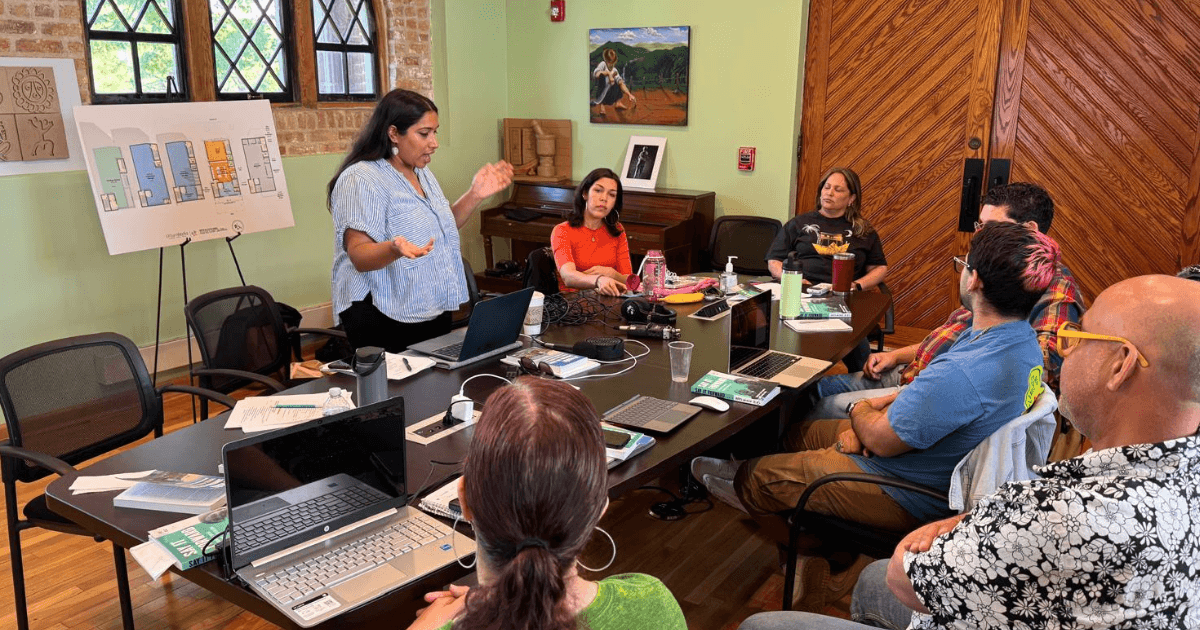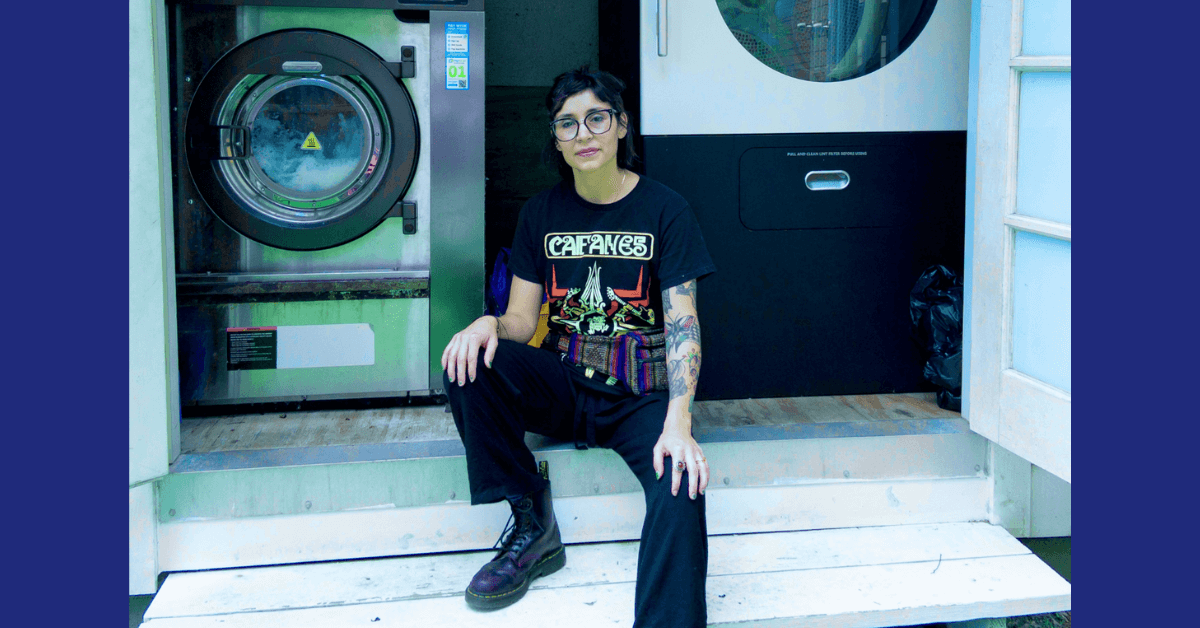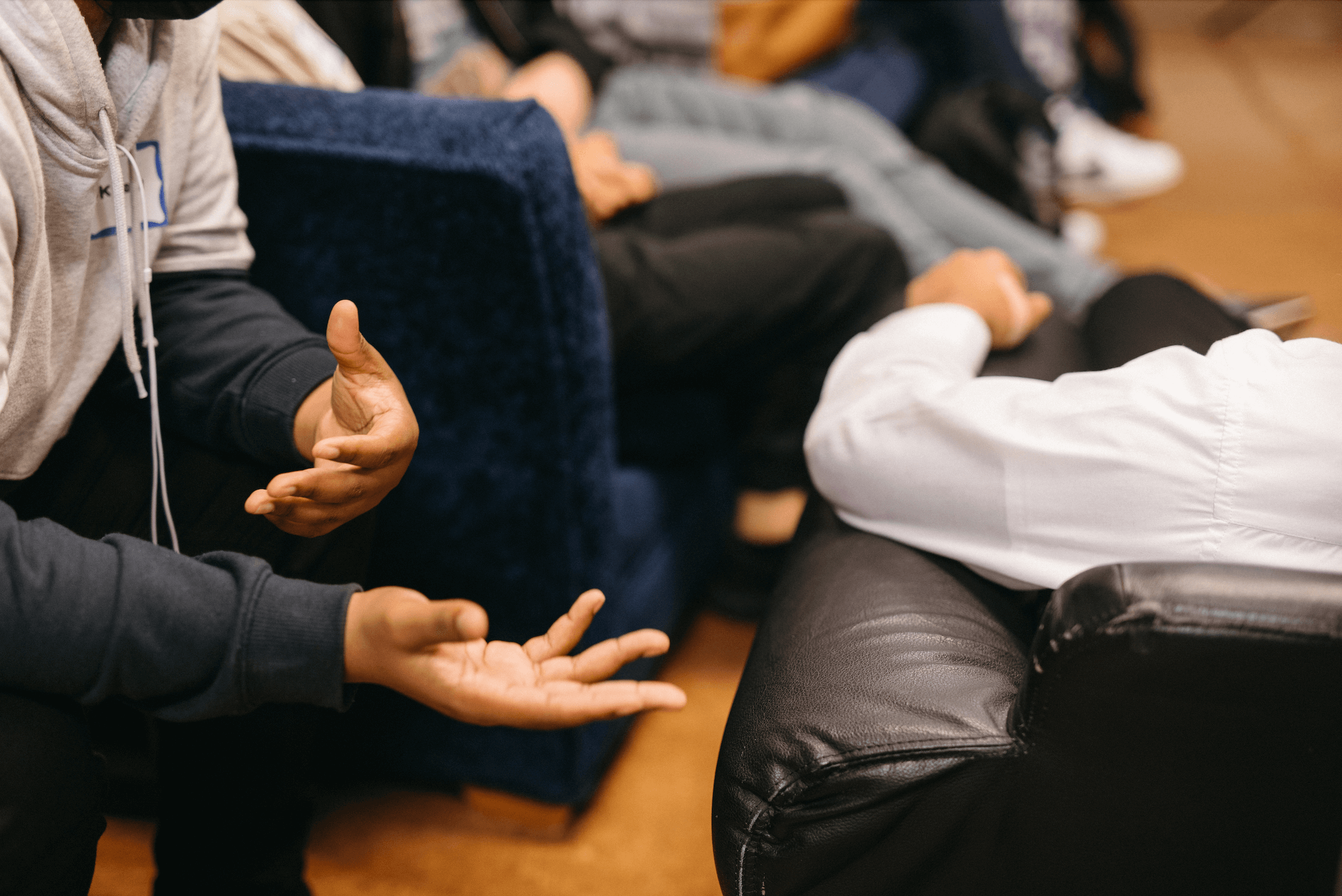This summer, we have been fortunate to have four wonderful interns join us to support our work. In this post, two of our interns Margaret O’Hare from Haverford College and Eliana Swerdlow from Yale reflect on their summer at VOW.  Margaret O’Hare
Margaret O’Hare
My internship at Voice of Witness this summer has been an incredible learning experience and has been unbelievably rewarding. Before I got to San Francisco for the internship, I was a bundle of extreme excitement and nerves; however, I needn’t have worried at all. The Voice of Witness staff has made this an unforgettable summer and with their extreme kindness and patience, I have learned a great deal from them. They are always encouraging us to take on new tasks and learn new skills, and they have taught me a lot about how a nonprofit works, as well as about community engagement and the process of publishing a book.
The staff has taken us off-site a few times for work and learning experiences, and it has been a wonderful treat to be able to explore what the Bay Area has to offer while interacting with the community and learning new storytelling skills. We’ve been to the SF MOMA on a “VOW-ting” (Voice of Witness outing) to view an interactive oral mural by the artist JR and have been invited to participate in several storytelling workshops with VOW community partners like The Puente Project, East Bay Sanctuary Covenant, and 826 Valencia.
I’ve also been incredibly fortunate to learn new skills and contribute my energy to something I truly believe in: the power of oral history to expand our understanding of one another and empathize. For example, students throughout the country are taught about oral history, empathy, and various human rights issues through free curriculum and lesson plans based on VOW’s book series and made available to teachers on VOW’s website. The books of oral histories that VOW publishes are powerful and necessary projects that ensure the voices of those experiencing injustice are heard. Most importantly, VOW’s commitment to building and sustaining connections with the communities they work with is crucial to ensuring we are actually serving these communities and advancing human rights, not exploiting their stories. I’ve gotten to work with the various staff members who’ve all taught me new things, and I’ve especially enjoyed getting to work directly with certain book projects by transcribing the oral history interviews and editing them. Working with and learning from Voice of Witness has been an unforgettable experience, and I’m very thankful for the opportunity to work alongside such amazing people doing such important work.Eliana Swerdlow
Growing up in my rural and homogenous hometown, I felt sheltered and distant from the many stories of people experiencing societal injustices. Perhaps because the town was not very diverse, we rarely seemed to talk about the unjust social structures pertaining to race, class, or gender. Given my community’s distance from these notions, my personal education and understanding of several injustices was shallow. My experiences in college, fortunately, have broken that surface level understanding. One of these experiences is my internship with Voice of Witness this summer.
 My work with Voice of Witness has proved to be a continuation of my personal goal to fill in the gaps of the earlier education I had in my hometown while also helping me to be a more thoughtful reader and witness of history going forward.
My work with Voice of Witness has proved to be a continuation of my personal goal to fill in the gaps of the earlier education I had in my hometown while also helping me to be a more thoughtful reader and witness of history going forward.
Working with VOW, I’ve realized that this form of sharing and learning history—through the oral histories of marginalized communities—feels the most authentic and meaningful to me. For me, an education through this type of history breaks the surface in a way that is not only accessible, but also an act itself towards a more just society.In my conversations with the VOW community and in my own readings of many VOW texts, I can see how their oral history book collection highlights the narrator’s agency while pulling out the reader’s empathy. Thus, this is history that is personal.
It’s neither textbook history told to us in a top-down fashion nor, as Dan Brown would call it, winner’s history. It’s not traditional journalism either. Rather, as I’ve learned in VOW’s Say it Forward, it’s a method to document history that “seeks the truth within the individual.”
Furthermore, I’m inspired by how VOW works to portray the truth of many narrators—that readers are invaluably fortunate to witness—in its literary and artistic approach. From Dao, I’ve gained insight into art’s role in social justice and human rights efforts. Initially, I was surprised when VOW’s managing editor, Dao, told me that VOW books are not direct examples of advocacy. Instead, they are works of literary art that are meaningful in and of themselves. Like other forms of art, VOW’s thoughtfully edited oral histories don’t fear truth, and they share it in a unique light every time. If the art is treated as seriously as it ought to be in the editorial process, then its truth can inspire activism. Having worked with VOW, I believe that when we fully commit to the artistic process, we are doing a service to the truth itself. As is the case for much of VOW’s work, it’s after a piece reaches its full artistic potential that it can best inspire activism.
From the entire VOW staff, I’ve learned that this work requires an open mind. In listening to editorial conversations, I’ve learned that editors ought not to go in with a thesis that assumes the narrators will share stories that align with the book’s goals. Instead, they ought to go into the project with curiosity so that they can fully encompass a story’s and, therefore, a person’s complexity. In VOW staff meetings, I’ve also observed such open mindedness that allows for incredible collaboration. I’ve been privileged to see how this open mindedness best allows VOW to successfully collaborate with other organizations about their thoughts on upcoming book proposals. VOW is also open to self-critique. During this time when the human rights crisis at the US and Mexico border is at the forefront of the news, I’ve seen VOW brainstorm ways to be better—to be more vocal about these injustices. It was a great privilege to watch and take part in this collaboration as it was undertaken by people who treat both the work and the other staff members with complete respect.
Finally, my observation of the many positive consequences of such open-mindedness inspires me—as one of the editors in Say it Forward writes—to say yes more. I’m inspired to say yes to collaboration. Say yes to listening. Say yes to inclusive history. Say yes to the opportunities to learn more than the surface level of a situation for a more personal and, at the same time, global education. Say yes to understanding the dimensionality of a person and their story because, at the very least, it will do you a service.




